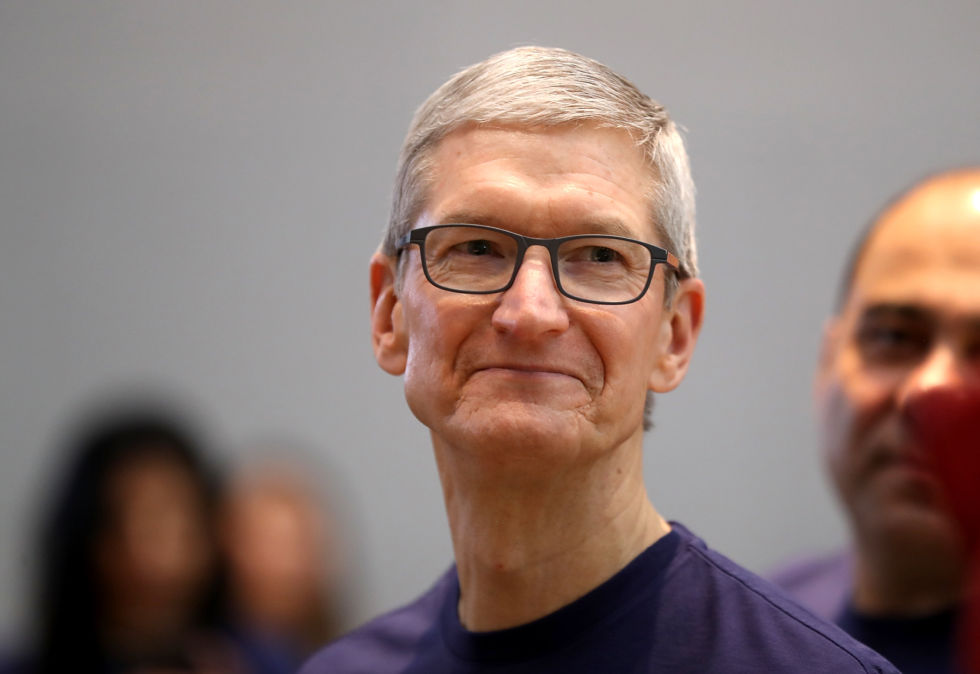Each year when I write these year-end recaps, I start with something along the lines of “You thought last year was crazy? Well, this year was even crazier.” Dear reader, I think I can dispense with that introduction—our world’s ever-growing craziness has to be a given at this point in time. So without further ado, here are your 20 most-commented stories on Ars Technica in 2018.

2018 was an especially bad year for gun violence in the US, with mass shootings in schools, bars, synagogues, and offices. This year, one of those tragedies took place at a Madden tournament in Florida. A lone gunman shot 11 people at the GLHF Game Bar in downtown Jacksonville. The shooter, a 24-year-old man from Baltimore, opened fire during a qualifying event that was being live-streamed on Twitch. The gunman took his own life.
The comments were heated, with the topic quickly turning to the practice of offering “thoughts and prayers” after mass shootings, with no changes in public policy that might prevent future outbreaks of violence.
1,029 comments

It goes without saying, but I’ll say it anyway. Having a post about what I think is one of the coolest things we’ve done this year show up in the top 20 is great. In January, Ars launched its reimagined subscription program, Ars Pro, which comes in two flavors: Ars Pro and Ars Pro++. Both options deliver an ad-free reading experience, full-text RSS feeds, clean-reading mode, freedom from tracking scripts, and access to our subscriber-only forums. For $50, Ars Pro++ also adds a gift—currently a YubiKey 4 two-factor authentication device—and what we call Classic View, a layout that harkens back to the first half-decade of Ars Technica’s existence. (Also, can you believe Ars will be old enough to buy a drink legally come next summer?)
The comment threads were full of suggestions on how to improve Ars Pro, comments about the advertising we run, and other bits of positive feedback—the kind of stuff that brings a tear to a jaded managing editor’s eye.
1,040 comments

In the Universe As We Understand It, you don’t have galaxies without dark matter. So a paper published in March detailing a galaxy, NGC1052-DF2, that had little or no dark matter came as a head-scratcher. It was spotted by an array of small telescopes tasked with finding and observing faint objects. When observed by larger telescopes, astronomers were gobsmacked. “This thing is astonishing,” said team member Pieter van Dokkum, “a gigantic blob that you can look through. It’s so sparse that you see all of the galaxies behind it. It is literally a see-through galaxy.” NGC1052-DF2 may very well be a “baryonic galaxy” completely bereft of dark matter.
1,065 comments

And this is where a theme for the top 20 begins. This is the first of a number of stories about the response to hate speech by white nationalists, Neo-Nazis, and other members of the far right from the tech sector. Earlier this month, Apple CEO Tim Cook talked about Apple’s stance against hate speech after receiving the Anti-Defamation League’s Courage Against Hate Award. Cook defended Apple’s moves throughout the year to keep hate speech off its platforms.
“At Apple, we are not afraid to say that our values drive our curation decisions,” said Cook. “And why should we be? Doing what’s right—creating experiences free from violence and hate, experiences that empower creativity and new ideas—is what our customers want us to do.”
The comments were largely focused on whether tech companies should act as champions of free speech in all cases, or if they had a responsibility to keep hate speech off their platforms.
1,109 comments
One of the most-puzzling cultural phenomenons to me is the continuing existence of Flat Earthers. Whether it’s due to an unorthodox reading of the Bible, a susceptibility to conspiracy theories, or something else altogether, belief that the Earth is something other than spherical persists among a diehard population. A number of those folks convened in Birmingham, UK, for the first-ever Flat Earth Convention to be held on the British Isles, and multiple ideas about the Earth’s shape were bandied about. These included “‘classic’ flat Earth, domes, ice walls, diamonds, puddles with multiple worlds inside, and even the Earth as the inside of a giant cosmic egg.”
The discussion thread touched on a number of topics, including the ways in which the Internet gives new life to conspiracy theories and allows adherents of said theories to organize around them.
1,182 comments

Next on the countdown is a trio of stories about far-right conspiracy-theorist Alex Jones. Over a period of several weeks during the late summer and fall, Jones and his fake news and conspiracy site InfoWars were banned from Facebook, Twitter, Spotify, Apple, and PayPal. In the case of Twitter, the initial temporary ban was handed down for inciting violence. Twitter’s ban was made permanent in a matter of weeks, again for violating the company’s abusive-behavior policy. For PayPal, the reason was promoting hate and “discriminatory intolerance.” Ultimately, the amount of hate speech emanating from Jones and InfoWars was the common thread for all of the platform ejections.
The comment threads for these stories were heated. There was the same kind of debate as in the Tim Cook story above about whether social media platforms should treat all speech equally or ban hate speech targeted at groups. “It is perfectly reasonable and prudent for these companies to not want their privately owned platforms to be used for harassment and violence. Kicking Jones off their services doesn’t violate his free speech. It is part of those platform holders’ freedom of speech to not associate with Jones and his cries for harassment and violence,” wrote itdraugr. Another reader, Arthmoor, accused PayPal of engaging “in censorship and gauging the reaction of people online to it to let them know if it’ll be useful against other people whose viewpoints they can’t tolerate either.”
1,247 comments (Twitter temp ban)
1,308 comments (PayPal)
1,406 comments (Twitter permaban)
Listing image by Aurich Lawson / Getty Images
https://arstechnica.com/?p=1428787

